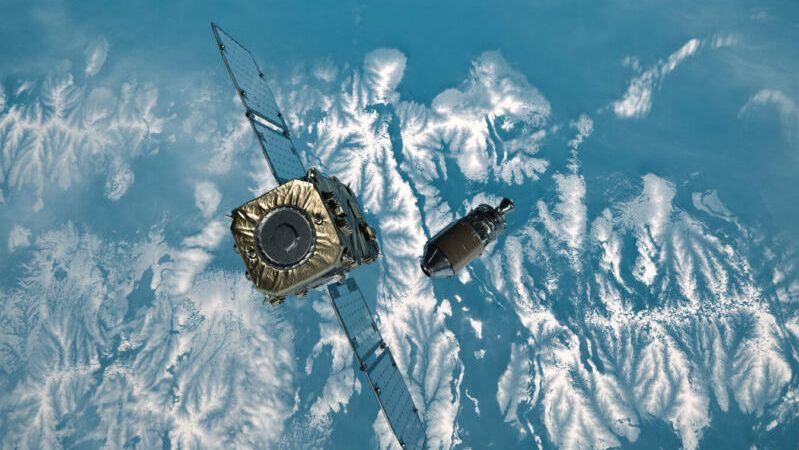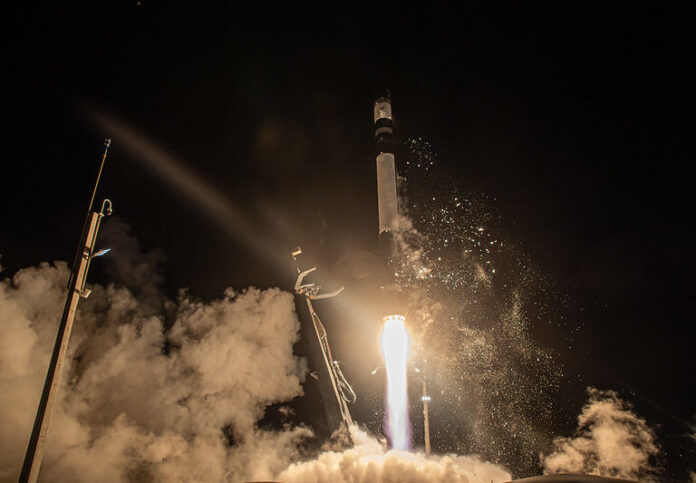On a crisp Sunday morning, February 18th, 2024, at 9:52 AM EST (3:52 AM local New Zealand time), history was made. From the scenic Mahia Peninsula launch site in New Zealand, Rocket Lab sent skyward the ADRAS-J satellite, marking the commencement of a groundbreaking mission dubbed “On Closer Inspection.” But unlike most spacefaring endeavors, this one wasn’t chasing distant stars or exploring uncharted celestial bodies. Instead, ADRAS-J, built by the innovative Japanese company Astroscale, had a much closer target in its sights: space junk
This mission represents a monumental step in addressing the growing issue of orbital debris. Dead satellites, rocket parts, and other remnants of our spacefaring activities have become a significant threat to operational satellites and future missions. ADRAS-J, therefore, embarks on a critical mission to inspect and gather valuable data on a specific piece of space junk, paving the way for potential removal solutions.
The Target in Focus
ADRAS-J’s target isn’t a small fry. It’s a defunct Japanese H-2A rocket stage, a sizeable piece of debris measuring 11 meters long and 4 meters wide, currently orbiting Earth at an altitude of approximately 373 miles (600 kilometers). Launched in 2009 to deploy the GOSAT Earth observation satellite, this rocket stage has now become part of the growing space junk problem.
ALSO READ: Voyager 1 Glitch Challenges Decades-Old Spacecraft, But Engineers Unravel the Mystery
Equipped for Scrutiny

ADRAS-J isn’t just going to take a casual glance at its target. This sophisticated satellite is armed with cutting-edge technology to meticulously study the debris:
- High-resolution cameras: Capturing detailed visuals of the rocket stage’s surface, revealing any damage or potential risks.
- Laser sensors: Precisely measuring the size, shape, and distance of the object, providing crucial data for future removal strategies.
- Spectrometers: Analyzing the material composition of the debris, aiding in developing effective removal techniques.
- More Than Just Inspection
While data collection is paramount, “On Closer Inspection” is also a testing ground for future debris removal technologies. Astroscale, the brains behind this mission, envisions a future where satellites can grapple, deorbit, or even recycle space junk. The knowledge gained from ADRAS-J will be invaluable in developing such solutions.
A Global Endeavor
Space debris removal is not a one-nation show. This mission is backed by the Japan Aerospace Exploration Agency (JAXA) and the European Space Agency (ESA), highlighting the global collaboration needed to ensure a clean and sustainable space environment.
Beyond the Launch
The successful launch of ADRAS-J marks the beginning of a critical phase in the mission. Over the next 3-6 months, the satellite will diligently circle its target, collecting valuable data. This information will be instrumental in developing future removal strategies and ensuring the long-term sustainability of space exploration.
Words from the Visionary
Nobu Okada, CEO and founder of Astroscale, commented on the mission’s significance: “The ADRAS-J mission is a pioneering mission that opens up a range of on-orbit capabilities that will lead to a sustainable future in space.”
Looking Ahead
“On Closer Inspection” is more than just a mission; it’s a symbol of hope for a cleaner and more sustainable space environment. As we continue to explore the cosmos, it’s crucial to address the challenges of space junk and ensure that future generations can continue our journey of discovery. Stay tuned for exciting updates as ADRAS-J unveils the secrets of space junk and paves the way for a brighter future in space!
